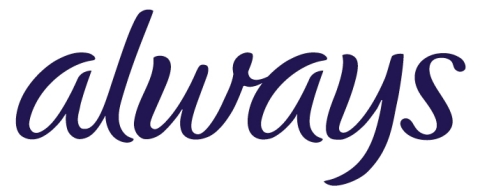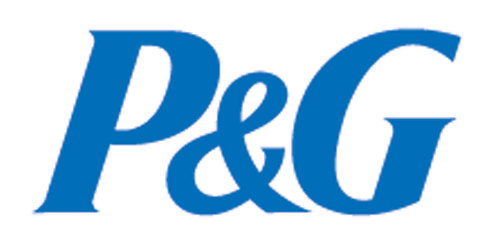CINCINNATI--(BUSINESS WIRE)--Playing princess, getting their nails done, dancing in bunny ears – is this a true representation of all the things that girls do? That’s the question you might ask if you take a critical look at how girls are portrayed in emojis, one of the fastest growing language in the world and one teen girls use all the time. Visual communication has always been a meaningful way to send a message, and if a picture is worth a thousand words, Always, the leader in global feminine care, is asking what these emojis are really saying to the girls who interact with them. In the lead up to International Women’s Day, at a moment where female achievements are celebrated worldwide, Always wants to empower girls to show that they can do anything and everything.
As part of the ongoing Always #LikeAGirl mission to stop the drop in confidence girls experience at puberty, Always partnered with award-winning documentary filmmaker Lucy Walker of Pulse Films to find out if girls feel accurately represented by the emoji options available to them. Lucy’s unique background, which includes a passion for sociolinguistics in addition to her long list of film credits, helped shape the new video and uncover surprising findings when talking to girls. The latest #LikeAGirl video, launching today, highlights how girl emojis reinforce the societal limitations girls face every day. Real girls of varying ages and backgrounds were asked about their experiences using emojis and if they felt accurately represented by the options available to show who they are and what they really do. Find out their answers by watching the Always #LikeAGirl – Girl Emojis video here.
“Society has a tendency to send subtle messages that can limit girls to stereotypes. As someone who has studied sociolinguistics, I know the kind of impact even seemingly innocuous language choices can have on girls. It was so interesting to hear these girls talk about emojis and realize how the options available to them are subtly reinforcing the societal stereotypes and limitations they face every day,” said Walker. “I’ve been a fan of the #LikeAGirl campaign from the beginning and I’m excited to join Always in empowering girls to be confident and stay confident by helping rally for change in societal limitations, like those illustrated in emojis.”
Data from the most recent Always Confidence & Puberty Survey*, shows that more than half of girls surveyed (54 percent) feel that female emojis are stereotypical, and 75 percent of girls would like to see female emojis portrayed more progressively, including professional female emoji options. As the first truly global language, emojis are relied upon in daily social communication – especially among girls, who send over a billion emojis every day1. Even Oxford Dictionaries’ declared ‘emojis’ the official word of 20152. Always wants to empower girls to ask for emojis that are as unstoppable as the girls they represent, to help every girl feel Unstoppable #LikeAGirl.
“Ever since we started our journey to stop the drop in confidence girls experience at puberty, we have been deepening our understanding of this critical stage. We know that girls, especially during puberty, try to fit in and are therefore easily influenced by society. In fact, we found that seven out of ten girls even felt that society limits them, by projecting what they should or should not do, or be**. The girls in emojis only wear pink, are princesses or dancing bunnies, do their nails and their hair, and that’s about it. No other activities, no sports, no jobs… the realization is shocking,” said Michele Baeten, Associate Brand Director and lead Always #LikeAGirl leader at Procter & Gamble. “Of course, societal limitations are broader than just emojis, but when we realized that stereotypical, limiting messages are hiding in places as innocent as emojis, it motivated us to demand change. Girls are downright amazing, and we won’t stop fighting all the limitations and knocks in confidence they experience at puberty until every girl feels unstoppable.”
Always wants girls to share what girl emojis they want to show how they are Unstoppable #LikeAGirl. Take a picture, shoot a video or tweet using #LikeAGirl to inspire young girls everywhere that anything and everything is possible!
Key ‘Always Puberty & Confidence Wave IV’ Study Findings
- 54 percent of 16-24 year old girls believe that female emojis are stereotypical
- Half of girls 16-24 years old find emojis to be a limited representation of females’ interests
- 76 percent of girls believe they should not only be portrayed doing feminine activities such as getting their hair cut or manicures
- 67 percent of girls say that the available female emojis imply that girls are limited in what they can do
- 75 percent of girls would like to see female emojis portrayed more progressively, including options showing female athletes or law enforcement officers
- Nearly half of girls (47%) feel there are not enough female emojis
- More than seven in ten (71%) of girls ages 16-24 use emojis multiple times a day and 82 percent use them on a daily basis
About Always #LikeAGirl
The Always #LikeAGirl movement is being fueled by the millions of girls around the world who are changing #LikeAGirl to mean amazing things. The Always #LikeAGirl campaign launched in June 2014 was inspired by the insight that the start of puberty and the first period mark the lowest moment in confidence for girls and how harmful words can add to that drop in confidence. It demonstrated the profound effect the phrase “like a girl” can have on girls’ self-confidence and it inspired a movement, which has started to change public perception: after seeing the #LikeAGirl video, most people (76 percent of women ages 16 to 24 and 59 percent of men) said the video changed their perception of the phrase “like a girl,”*** according to the Always Puberty & Confidence Wave II Study. But it could not stop there. In 2015, a new Always study revealed that 72 percent of girls feel society limits them by telling them what they should and should not do or be. And more than half of girls felt that societal limitations would be the same or worse ten years from now, showing a lack of hope for change. Always could not accept that and launched the Unstoppable #LikeAGirl campaign to empower all girls to show the world that they could do or be anything and everything. For more information about the #LikeAGirl movement, visit www.always.com.
Survey Methodology
*The Always Confidence & Puberty Wave IV Study was conducted by MSLGROUP Research utilizing Research Now Panels that surveyed a total of 1,514 Americans. There was a nationally representative sample group of 1,006 females aged 16 to 24 year old and 508 males aged 16 to 24. The survey was implemented between the dates of December 30, 2015 through January 7, 2016.
**The Always Confidence & Puberty Wave III Study was conducted by MSLGROUP Research utilizing Research Now Panels that surveyed a total of 1,800 Americans (1,300 American females aged 16 to 24 years old and 500 American males aged 16 to 24). There was a nationally representative sample group of 1,000 females and 500 males as well as an additional boost of 150 African American and 150 Hispanic American females. The survey was implemented between the dates of April 30, 2015 through May 8, 2015.
***The Always Confidence & Puberty Wave II Study was conducted by MSLGROUP using the Research Now Panel that surveyed a total of 1,800 Americans (1,300 American females aged 16 to 49 years old and 500 American males aged 16 to 49). There was a nationally representative sample group of 1,000 females and 500 males as well as an additional boost of 150 African American and 150 Hispanic American females. The survey was implemented between the dates of December 5, 2014 through December 12, 2014.
About Always
Always®, the world's leader in feminine protection, offers a wide range of feminine pads, wipes and liners designed to fit different body types, period flows and preferences. The Always line of feminine products includes Always Infinity™, Always Ultra Thins, Always Maxis, Always Liners and Always Feminine Wipes. Please visit www.always.com for more information.
About Procter & Gamble
P&G serves consumers around the world with one of the strongest portfolios of trusted, quality, leadership brands, including Always®, Ambi Pur®, Ariel®, Bounty®, Charmin®, Crest®, Dawn®, Downy®, Fairy®, Febreze®, Gain®, Gillette®, Head & Shoulders®, Lenor®, Olay®, Oral-B®, Pampers®, Pantene®, SK-II®, Tide®, Vicks®, and Whisper®. The P&G community includes operations in approximately 70 countries worldwide. Please visit http://www.pg.com for the latest news and information about P&G and its brands.
1 Dua, T. (2015, May 6). Emojis by the numbers: A Digiday data dump. http://digiday.com/brands/digiday-guide-things-emoji/
2 Oxford Dictionaries (2015, November 16). Oxford Dictionaries Word of the Year 2015 is… OxfordWords Blog. http://blog.oxforddictionaries.com/2015/11/word-of-the-year-2015-emoji/





